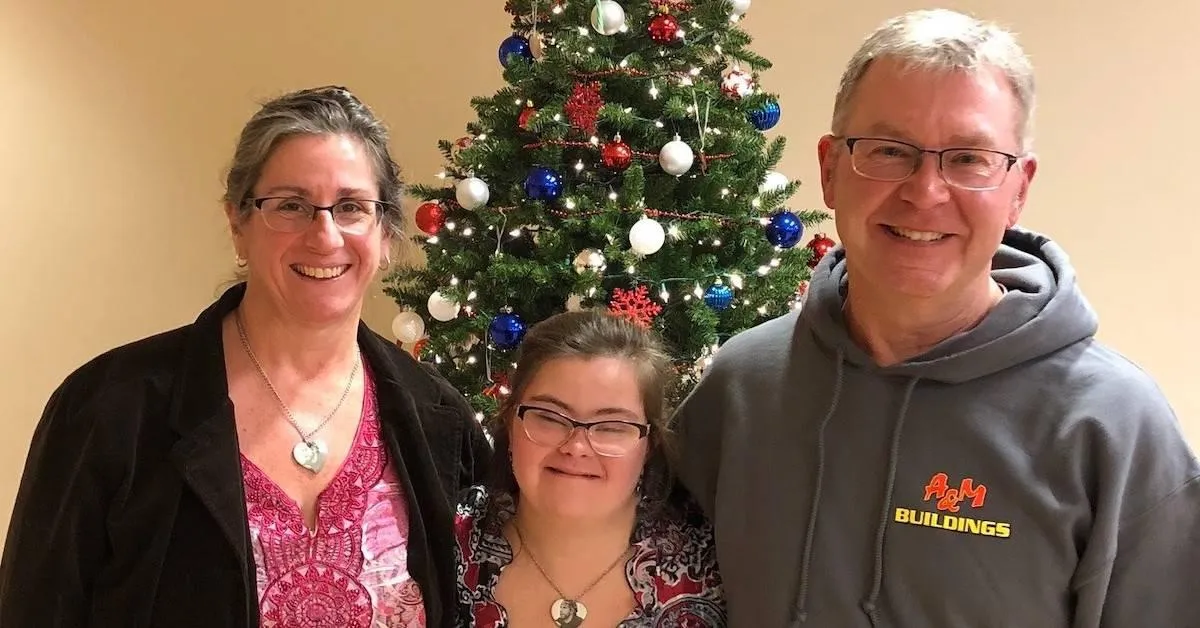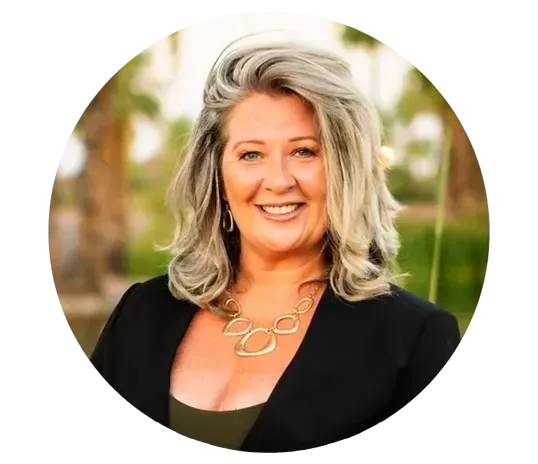Ethics Edge
|
Real talk on ethics,
advocacy, and nursing
with integrity.
Ethics Edge
Real talk on ethics,
advocacy, and nursing
with integrity.
Jodi O'Malley, MSN RN | June 11, 2025 | 5 min read
Grace Schara’s Story: The COVID-19 Case That Could Change Everything

Image courtesy of FOX 11 News / fox11online.com
In October 2021, 19-year-old Grace Schara was admitted to Ascension St. Elizabeth Hospital in Appleton, Wisconsin. A bright, spirited young woman with Down syndrome, Grace had tested positive for COVID-19. Her family, like so many others at the time, sought help from the medical system they trusted. They expected healing. They believed in hope.
Grace never came home.
The Death That Sparked a Lawsuit
Grace’s story is now at the heart of a groundbreaking wrongful death lawsuit — the first of its kind involving a COVID-19 patient whose death certificate still reads U07.1, the CDC’s code for death by COVID. But Grace’s parents and their legal team argue something far more tragic: it wasn’t COVID-19 that killed her — it was the hospital protocol
A protocol that included:
A potent cocktail of sedatives: Precedex, lorazepam, and morphine
An unauthorized Do Not Resuscitate (DNR) order
The forced removal of her father from her hospital room
Now, Grace’s family is doing what so many others were unable or afraid to do — they’re taking their fight for justice to a jury.
They Said You Couldn’t Sue—They Were Wrong
Ascension Health’s defense? Discredit and deflect.
Their legal strategy has included framing Grace’s parents as "conspiracy theorists" and questioning their credibility as non-medical professionals. They’ve leaned heavily on academic experts from elite institutions to argue that Grace died from the progression of COVID-19 or complications from Down syndrome.
What they haven’t explained:
Why Grace was given such a dangerous drug combo
Why a DNR was issued without consent
Why a parent was forced to leave her side
The family's legal team, however, has stayed grounded in data, policy, and patient rights, revealing a story not just of poor judgment — but of systemic failure.
Follow the Money: The ICU Billing Code Loophole
One of the most damning revelations in this case involves ICU billing practices. Administering Precedex elevates a patient's status to ICU-level, triggering a higher billing code, regardless of whether the patient is physically moved to the ICU.
Grace received Precedex while still in a general care room — a move that may have benefited the hospital financially, but one that arguably endangered her life. Coupled with lorazepam and morphine, the sedation level was excessive and unjustifiable.
Why This Trial Matters
Grace’s family believes her Down syndrome influenced how she was treated — not just clinically, but morally.
Research has shown that individuals with Down syndrome are disproportionately assigned DNR orders, often without family consent. In fact, during the pandemic, people with intellectual disabilities were up to six times more likely to receive DNRs, according to the Harvard Gazette.
The implication: Grace’s life may have been seen as less valuable. Her parents’ objections, less valid.
This trial isn’t just about medical malpractice. It’s about disability rights. Human rights. Parental rights.
The Power of the Advocate at the Bedside
Grace’s father was her fiercest advocate — until he became an “inconvenience.” His ejection from the hospital room is a chilling example of how hospitals, during COVID, increasingly treated family members as threats instead of partners.
Nurse David Wayne, on Nurses Out Loud, described this shift as part of a larger culture of control: “It’s not about safety. It’s about silencing dissent.”
When families were locked out, patient care suffered. When questions were raised, they were dismissed. Grace was left without the one person who could have spoken for her — and she paid the price.
A System in the Spotlight
This trial exposes something deeper than one family’s heartbreak. It shines a light on:
Protocol over personalization
Financial incentives outweighing clinical judgment
Legal immunity shielding unethical practices
The dangerous weaponization of pandemic language
From “our patience is wearing thin” to “pandemic of the unvaccinated,” narratives during COVID served not just to inform, but to silence. To discredit. To isolate.
This case is breaking that silence.
Why It Matters — For All of Us
Whether you’re a nurse, a patient, a parent, or a whistleblower — this trial is yours, too. It represents every clinician who watched protocols harm patients. Every family who never got answers. Every body returned in a sealed bag with a death certificate that didn’t match the story.
Grace Schara was not a number. She was not a billing code. She was a daughter. A light. A life that mattered.
Her family’s courage is not just a legal effort. It’s a movement — for accountability, for ethical care, and for the return of humanity to medicine.
Support the Schara Family
Learn More About Ethical Nursing & Advocacy
Jodi O'Malley, MSN RN | June 11, 2025 | 5 min read
Grace Schara’s Story: The COVID-19 Case That Could Change Everything

Image courtesy of FOX 11 News / fox11online.com
In October 2021, 19-year-old Grace Schara was admitted to Ascension St. Elizabeth Hospital in Appleton, Wisconsin. A bright, spirited young woman with Down syndrome, Grace had tested positive for COVID-19. Her family, like so many others at the time, sought help from the medical system they trusted. They expected healing. They believed in hope.
Grace never came home.
The Death That Sparked a Lawsuit
Grace’s story is now at the heart of a groundbreaking wrongful death lawsuit — the first of its kind involving a COVID-19 patient whose death certificate still reads U07.1, the CDC’s code for death by COVID. But Grace’s parents and their legal team argue something far more tragic: it wasn’t COVID-19 that killed her — it was the hospital protocol
A protocol that included:
A potent cocktail of sedatives: Precedex, lorazepam, and morphine
An unauthorized Do Not Resuscitate (DNR) order
The forced removal of her father from her hospital room
Now, Grace’s family is doing what so many others were unable or afraid to do — they’re taking their fight for justice to a jury.
They Said You Couldn’t Sue—They Were Wrong
Ascension Health’s defense? Discredit and deflect.
Their legal strategy has included framing Grace’s parents as "conspiracy theorists" and questioning their credibility as non-medical professionals. They’ve leaned heavily on academic experts from elite institutions to argue that Grace died from the progression of COVID-19 or complications from Down syndrome.
What they haven’t explained:
Why Grace was given such a dangerous drug combo
Why a DNR was issued without consent
Why a parent was forced to leave her side
The family's legal team, however, has stayed grounded in data, policy, and patient rights, revealing a story not just of poor judgment — but of systemic failure.
Follow the Money: The ICU Billing Code Loophole
One of the most damning revelations in this case involves ICU billing practices. Administering Precedex elevates a patient's status to ICU-level, triggering a higher billing code, regardless of whether the patient is physically moved to the ICU.
Grace received Precedex while still in a general care room — a move that may have benefited the hospital financially, but one that arguably endangered her life. Coupled with lorazepam and morphine, the sedation level was excessive and unjustifiable.
Why This Trial Matters
Grace’s family believes her Down syndrome influenced how she was treated — not just clinically, but morally.
Research has shown that individuals with Down syndrome are disproportionately assigned DNR orders, often without family consent. In fact, during the pandemic, people with intellectual disabilities were up to six times more likely to receive DNRs, according to the Harvard Gazette.
The implication: Grace’s life may have been seen as less valuable. Her parents’ objections, less valid.
This trial isn’t just about medical malpractice. It’s about disability rights. Human rights. Parental rights.
The Power of the Advocate at the Bedside
Grace’s father was her fiercest advocate — until he became an “inconvenience.” His ejection from the hospital room is a chilling example of how hospitals, during COVID, increasingly treated family members as threats instead of partners.
Nurse David Wayne, on Nurses Out Loud, described this shift as part of a larger culture of control: “It’s not about safety. It’s about silencing dissent.”
When families were locked out, patient care suffered. When questions were raised, they were dismissed. Grace was left without the one person who could have spoken for her — and she paid the price.
A System in the Spotlight
This trial exposes something deeper than one family’s heartbreak. It shines a light on:
Protocol over personalization
Financial incentives outweighing clinical judgment
Legal immunity shielding unethical practices
The dangerous weaponization of pandemic language
From “our patience is wearing thin” to “pandemic of the unvaccinated,” narratives during COVID served not just to inform, but to silence. To discredit. To isolate.
This case is breaking that silence.
Why It Matters — For All of Us
Whether you’re a nurse, a patient, a parent, or a whistleblower — this trial is yours, too. It represents every clinician who watched protocols harm patients. Every family who never got answers. Every body returned in a sealed bag with a death certificate that didn’t match the story.
Grace Schara was not a number. She was not a billing code. She was a daughter. A light. A life that mattered.
Her family’s courage is not just a legal effort. It’s a movement — for accountability, for ethical care, and for the return of humanity to medicine.
Support the Schara Family
Learn More About Ethical Nursing & Advocacy

Jodi O'Malley, MSN RN
Jodi O’Malley, MSN, RN is a multifaceted professional, encompassing roles as an author, columnist, radio host, and motivational speaker. With a background as a transformative life strategist and a faith-based master’s prepared ER nurse, her career path took a dramatic turn when her advocacy for transparency in healthcare led to her sharing an insider video with Project Veritas. This courageous act revealed significant underreported vaccine injuries and systemic corruption within the healthcare system, where policies overshadowed patient rights.

Jodi O'Malley, MSN RN
Jodi O’Malley, MSN, RN is a multifaceted professional, encompassing roles as an author, columnist, radio host, and motivational speaker. With a background as a transformative life strategist and a faith-based master’s prepared ER nurse, her career path took a dramatic turn when her advocacy for transparency in healthcare led to her sharing an insider video with Project Veritas. This courageous act revealed significant underreported vaccine injuries and systemic corruption within the healthcare system, where policies overshadowed patient rights.
Email:
Location:
PHOENIX, ARIZONA
If you're interested in having Jodi speak at an event, please press the button below.

